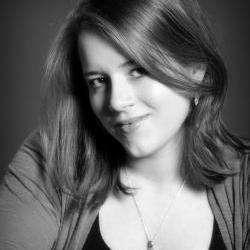For the second installment in Saturday evening’s Corbridge Chamber Music Festival double bill, St Andrew’s Church was bedecked with tea lights for a programme of light-hearted salon chamber music, based around Book 6 of Mendelssohn’s Songs Without Words, Op. 67. Benjamin Frith was once more at the keyboard, dressed in an outfit he deemed ‘ridiculous’ – actually, the burgundy velvet jacket and bow tie were perfect for the mellow and relaxed atmosphere of the music.
Mendelssohn’s Songs Without Words were ideally suited to the Beidermeier salons of the early 19th century, where middle-class families would hold small gatherings and show off their pianistic skills amongst friends and family. The lyrical, poetic nature of these small offerings was enthusiastically received in England and Germany as an alternative to other small forms, such as the Impromptu or the Nocturne. Although the title implies a relationship with an existing text or storyline, Mendelssohn himself resisted attempts to interpret the songs too literally, saying ‘What the music I love expresses to me, is not thought too indefinite to put into words, but on the contrary, too definite’. He insisted that each song would be understood by everyone, without any words, and by its musical content alone, and this was certainly brought to life tonight by the deft and sensitive fingers of Benjamin Frith. Ranging from passionate to charmingly tongue-in-cheek, the melodic line was carefully nurtured and coaxed out of the accompanimental texture, bringing the music to life.
These beautiful self-contained sketches were interspersed with both popular and little known instrumental ‘songs’, performed by Alice Neary and Rosie Bliss (cello) and David Adams (violin and viola). Perhaps the most famous of these were the Fauré Après Un Rêve (played by Bliss) and the Rachmaninov Vocalise (Neary). The Fauré was the only ‘song’ of the evening to have been originally set with words, originally by an anonymous Italian poet and freely interpreted by Romain Bussaine. The dream of a romantic elopement with an imagined lover is full of passionate yearning, and this was magically captured by the cello, as the original vocal line is transposed into the higher register of the instrument for the second verse, embodying in the music the longing for the night, and the dream, to return.
The real highlight of the evening was Prokofiev’s Cinq Melodies, played by David Adams on violin. In 1918, Prokofiev fled Russia for a new life abroad and in 1920 he ended up in Paris, which was then the musical capital of the world. It was here he composed this little novelty, the Cinq Melodies, a vocalise for Russian soprano Nina Koshetz. Five years later, Prokofiev arranged these into the violin version we heard this evening. The pungent harmonies seem to hover between keys in a rather uneasy fashion and the melodic line can be disjunct and angular; however, the clean and understated rendition given this evening was a complete showstopper. The haunting, bittersweet melodies sent a shiver down the spine and Adams was always controlled, never showy, performing with an ease and delicacy which I suspect belies a complex and technically challenging set of short songs.
The concert as a whole lulled the audience into a beautiful haze of magical melody and was a stunning end to an evening of fabulous music-making. I was only sad that I couldn’t stay for the remainder of the Festival; having experienced a taster this weekend, you may well find me in Corbridge on an annual basis from now on!


